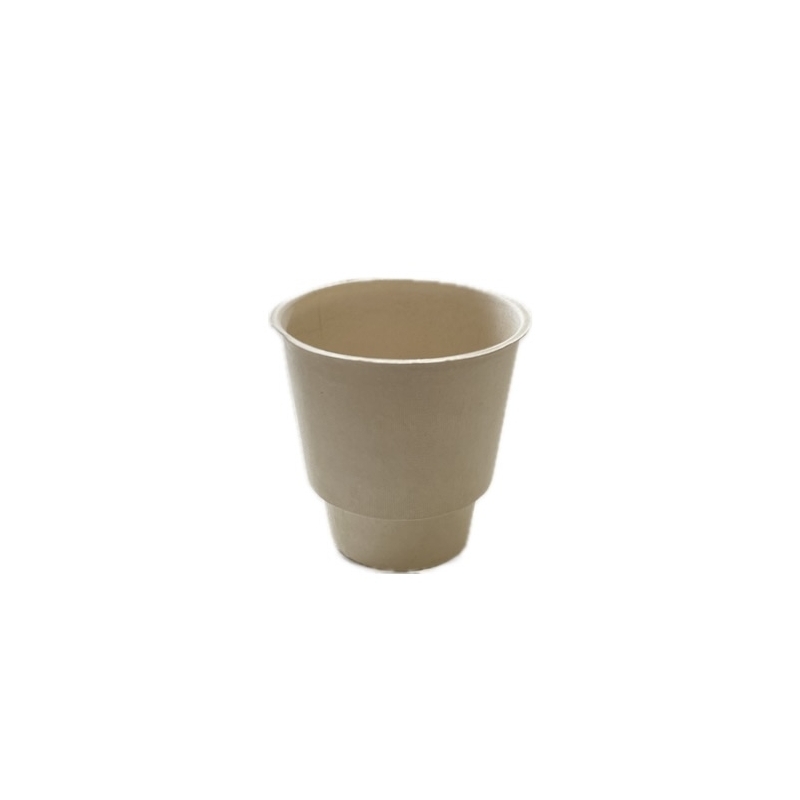

BtoB: Please send us your intra-community VAT number for VAT-free orders
Questions ? Need some information ? +33 (0)7 62 14 22 70



€0.03 par unité
calendar_month Delivery expected between %MINIMAL_DATE% and %MAXIMAL_DATE%
Disposable cups made of eco-responsible, biodégradable materials
Disposable cups in bio-sourced material are a pleasant alternative to plastic cups.
Data sheet
Disposable cups made of cardboard and bagasse offer numerous environmental and health benefits compared to plastic cups.
Find your disposable cups at the best market prices at Eocrep.
Bagasse cups are made from sugarcane fibers. Bagasse, a by-product of sugar production, is a renewable resource that, when transformed into cups, reduces carbon footprint and waste, unlike plastics. At the production site, cups are manufactured using a thermoforming process that leaves no seams. No coating is needed for these cups to be watertight.
Cardboard cups are made from thick cardboard called "beverage cardboard". A visually imperceptible thin coating makes the cardboard moisture-resistant. We have selected cardboards with a very thin layer of Bio PBS. The disposable cups are produced through a process of cutting, forming, and sealing. Our cardboard cups are made in France.
Disposable cardboard cups feel smoother to the touch than bagasse cups. Both types of cups have a cylindrical shape with a slightly flared edge at the top to facilitate drinking and strengthen the structure of the cup. This shape also ensures a good grip.
Bagasse and cardboard cups are biodegradable and compostable, thus helping to reduce pollution. In terms of recyclability, cardboard and bagasse also stand out, offering easier recycling than many plastics, particularly those used for disposable cups.
From a health perspective, disposable cups made of cardboard and bagasse do not release potentially harmful chemicals such as BPA.
Cardboard or bagasse cups are suited for various needs such as tea and coffee, as well as for cold drinks, fruit juices, sodas, or smoothies. They also provide good thermal insulation, making the use of protective sleeves for hot drinks unnecessary. Heat-resistant, they can hold hot beverages without the risk of deformation.
Disposable cups made of bagasse and cardboard are perceived as more ecological and of higher quality, which can advantageously enhance the brand image of restaurants. Using disposable cardboard or bagasse cups contributes to reducing dependence on fossil fuels, thus supporting efforts towards a greener economy.
Cardboard and bagasse cups are practical and aesthetically pleasing objects, suitable for a variety of daily uses, particularly for serving hot or cold beverages in formal or informal settings.